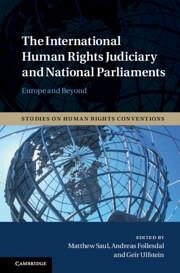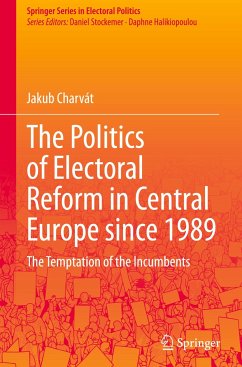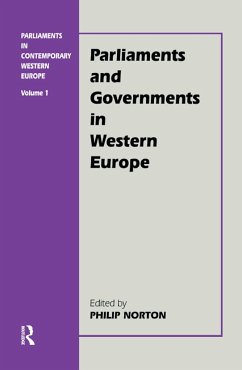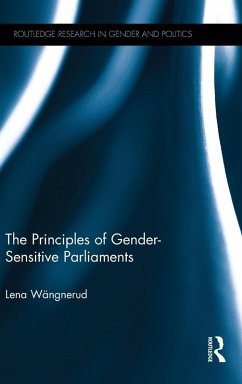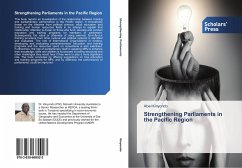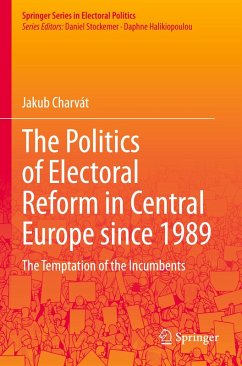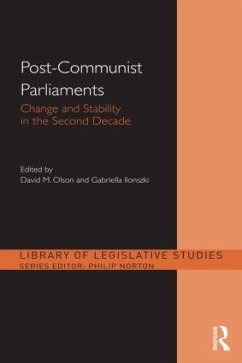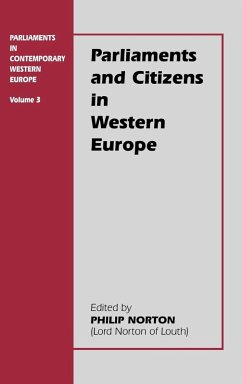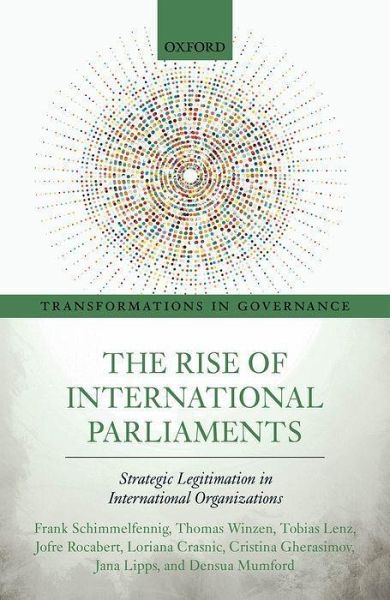
Schimmelfennig Et Al
Gebundenes Buch
RISE INTERNATIONAL PARLIAMENTS TIG C
Versandkostenfrei!
Versandfertig in 1-2 Wochen

PAYBACK Punkte
76 °P sammeln!




This book describes and explains the development of international parliamentary institutions and asks why international organizations establish parliamentary institutions without, however, granting them relevant decision-making powers.
Frank Schimmelfennig is Professor of European Politics, Center for Comparative and International Studies, ETH Zurich. His research focuses on European integration and, specifically, integration theory, enlargement, differentiated integration, EU democracy promotion and democratization. Previous publications include Ever Looser Union? Differentiated European Integration (with Thomas Winzen, OUP, 2020) and The EU, NATO, and the Integration of Europe: Rules and Rhetoric (CUP, 2003, Winner of the EUSA Best Book Award 2005). Thomas Winzen is a Lecturer in Government, University of Essex. His research focuses on the design and legitimate governance of the European Union and other international institutions with a particular interest in differentiated integration, parliamentarization, and emerging structures of global internet governance. Previous publications include Ever Looser Union? Differentiated European Integration (with Frank Schimmelfennig, OUP, 2020) and Constitutional Preferences and Parliamentary Reform: Explaining National Parliaments' Adaptation to European Integration (OUP, 2017, Winner of the 2018 Best Book Prize of UACES Academic Association for Contemporary European Studies). Tobias Lenz is Professor of International Relations, Leuphana University Lüneburg. His research focuses on the design and evolution of international organizations, their legitimacy and legitimation and on the role of the European Union in global regionalism. Previous publications include A Theory of International Organization (with Liesbet Hooghe and Gary Marks, OUP, 2019). Jofre Rocabert is a post-doctoral fellow, Hebrew University of Jerusalem, and the Free University of Berlin. His research concentrates on the legitimation of International Organizations. Loriana Crasnic is a post-doctoral researcher, Chair of International Relations and International Political Economy, University of Zurich. Her research explores the performance of and dynamics within international organizations and institutions, especially in financial and environmental domains. Cristina Gherasimov is a research fellow, German Council on Foreign Relations. Her research includes democratic transitions and institution-building in Central and Eastern Europe and post-communist states, European and Eurasian integration, good governance, rule of law, anti-corruption policy, and democratic backsliding. Jana Lipps is a PhD candidate in the European Politics Research Group, Center for Comparative and International Studies, ETH Zurich. Her research focuses on IO parliamentarization and European integration, specifically, the political economy of differentiation, inequality and public support for the EU. Densua Mumford is Assistant Professor of International Relations, Leiden University. Her research explores the institutional design of international organisations in the Global South and the foreign policy of African states.
Produktdetails
- Verlag: ACADEMIC
- Seitenzahl: 356
- Erscheinungstermin: 12. Januar 2021
- Englisch
- Abmessung: 240mm x 161mm x 24mm
- Gewicht: 699g
- ISBN-13: 9780198864974
- ISBN-10: 0198864973
- Artikelnr.: 59884096
Herstellerkennzeichnung
Libri GmbH
Europaallee 1
36244 Bad Hersfeld
gpsr@libri.de
Für dieses Produkt wurde noch keine Bewertung abgegeben. Wir würden uns sehr freuen, wenn du die erste Bewertung schreibst!
Eine Bewertung schreiben
Eine Bewertung schreiben
Andere Kunden interessierten sich für




